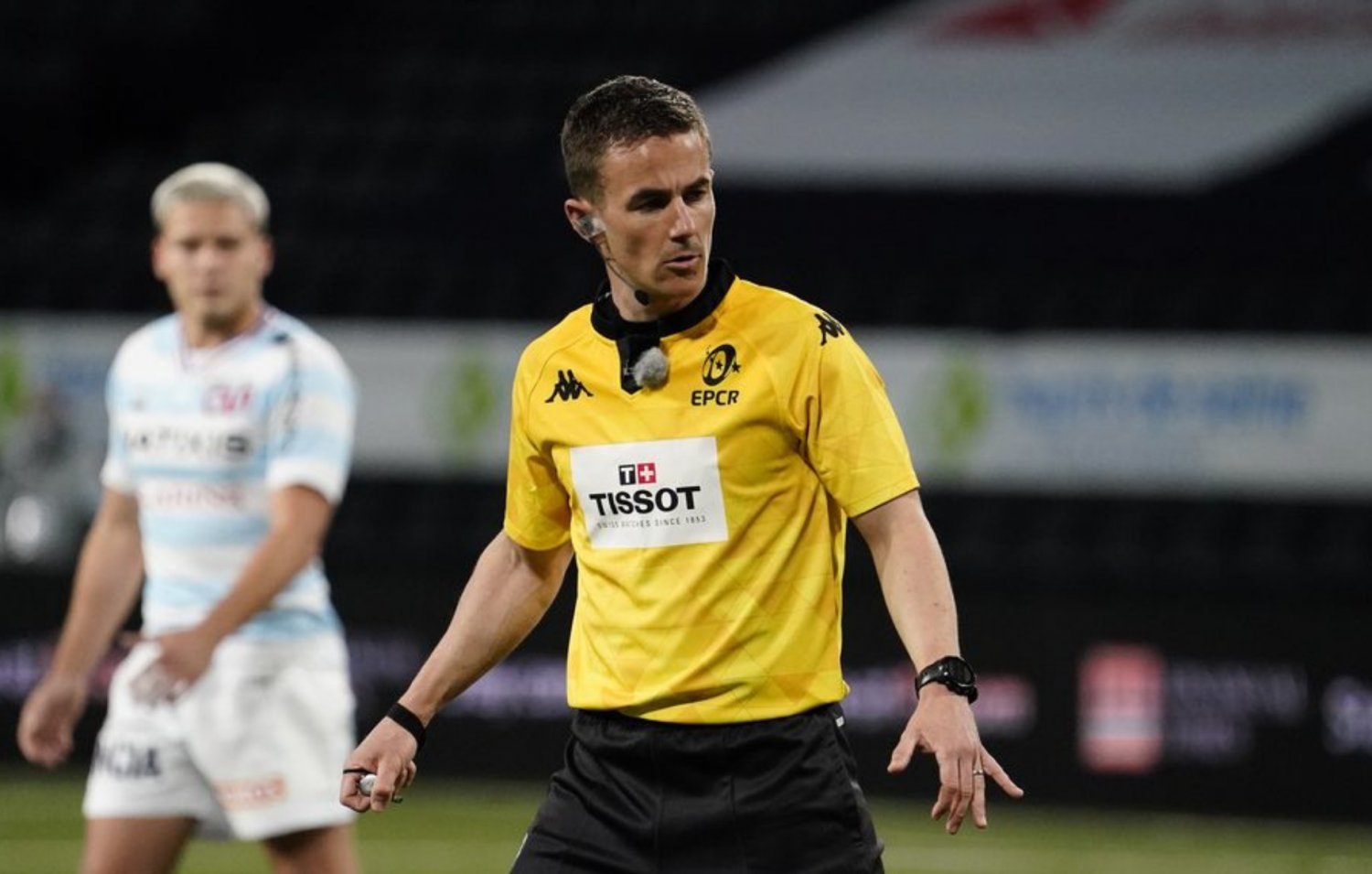Referee Pearce reveals Investec Champions Cup nerves
- 2495

When Investec Champions Cup newcomers Aviron Bayonnais step out onto the iconic Thomond Park turf on December 9, they’d be forgiven for having a few nerves. But they’ll not be the only ones, as English referee Luke Pearce will be trying to shut out the home fans’ noise too.
It’s no easy task in Munster on a normal day, but with the increased intensity of the Investec Champions Cup and the contrasts in playing culture to deal with as well, Pearce will be required to use all his mental resilience and experience.
“This is the biggest club tournament in the world, so of course you’re nervous,” he said at the tournament launch.
“You want to make sure that as a ref, you’re part of the biggest games from the pool stages through to the knockouts. The pressure to perform is probably higher than in domestic tournaments.
“You know that players’ ambition is to win the Cup and you’ve got to make sure you’re facilitating that game as well as you can, but of course you’re aware of the expectations and pressures outside of the environment as well.”
Few areas are currently as grey in the environment as the TMO interruptions, which have kept fans frustrated and informed in equal measure at times, sometimes within minutes of each other.
Meanwhile, the scrum continues to be, for the less-informed observer, just something that occasionally gets penalised for no obvious reason. Keeping those aspects together and facilitating a watchable, co-ordinated game of rugby is an unenviable task.
“The set-piece has always been an area which is hard, because it's such a specialty and it's also what makes rugby unique to any other sport, and we have got to make sure that we keep that set-piece there and as competitive as possible,” said Pearce.
“The lineout-to-maul has (also) been an area where it's changed in recent years and become more competitive than ever. Teams are now turning over more lineouts than ever. Players know exactly where they can push the law to and right on the edge of it, but we've got responsibilities again to make those areas as followable and understandable as possible.
“The TMO area will always be a discussion. Technology in sport is a great addition, but it brings about various challenges and we're not the only sport to be experiencing that.
“So, we have got to make sure that we've got an element of respect to referee the law, along with safety, which is the most important area of the game, and make sure we're consistent with the cards and how we explain decisions.
“With the Investec Champions Cup and the Challenge Cup we get a lot of new people watching the sport, so we have to make sure that whatever information we're giving is as followable as possible, so that the new rugby fans watching it follow decisions as well as the people who have been watching it for dozens of years.”
Pearce’s EPCR experience stretches back 12 years now, 10 of them in the Champions Cup, while he is now a relative veteran of the Test circuit, having refereed his first all-tier one clash at the age of 30, in 2018, and his first Test match five years prior to that.
He’s endured his fair share of brickbats – not least in his first high-profile Test when he was roundly criticised for getting decisions about two high tackles wrong – but also bouquets, with one rugby outlet naming him the best Test referee on the circuit shortly before the World Cup.
He was outspoken last year on the current trend for trolling online, which his close friend, Wayne Barnes, has also been a victim of, and remains an advocate of clarity and education being of utmost importance to the match-watcher.
“People won’t always agree with decisions – that's the nature of sport,” he said. “But if you can explain them well enough and make them followable, then people may not agree, but they understand them.
“Making people, and most importantly the players to start with, understand why you're doing what you're doing I think is ultimately the biggest area that we can work on.
“We won't get everything right – rugby is too difficult to get every decision right – but if you can make it followable, then then you’re halfway there.”
















